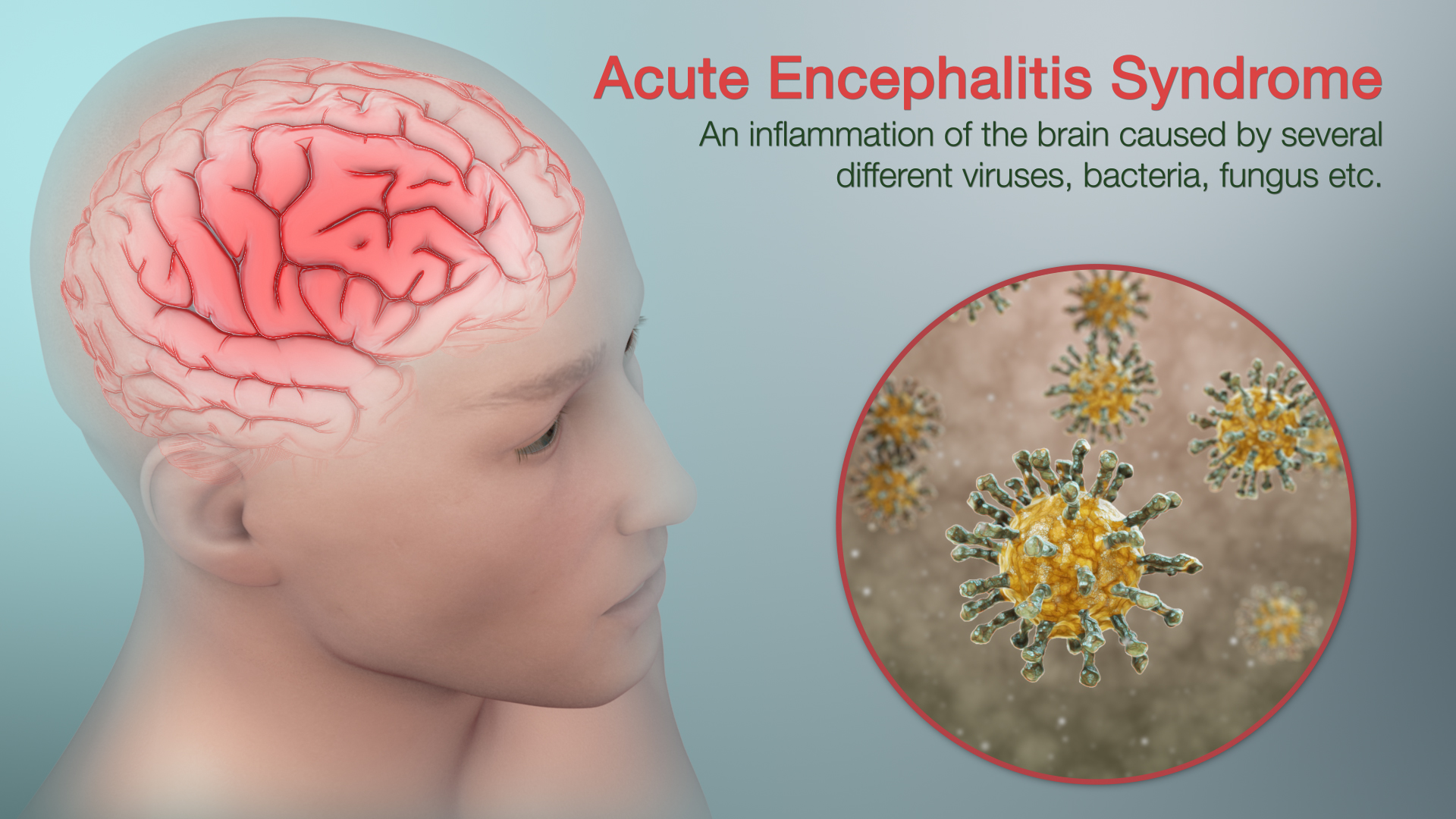Acute Encephalitis Syndrome or AES is a neurological disorder that causes inflammation, irritation, or swelling in the brain of the patient. This disorder adversely affects the brain as well as the limbic system of the patient and is known to affect children more than adults and elders. AES like any other viral infection spreads rapidly through contaminated surfaces. As a preventive measure, people should sanitize their surroundings and be mosquito-free, and hydrated all the time.

Symptoms
The general signs and symptoms of the disease are as follows:
- Dizziness
- Headache
- Light sensitivity
- Memory loss
- Vomiting, nausea, and fever
- Impairment of vision
- Loss of hearing
- Paralysis and coma
- Unconsciousness
- Twitching or seizures
- Confusion, fatigue or anxiety
- Back pain, weakness, trouble walking
- Stiffness in the back and neck
Medical professionals face issues while identifying the symptoms and signs of AES, as they are comparatively hard to identify. Furthermore, these symptoms are found to spread at a rapid pace, damaging the important brain cells of the brain.
Causes
Various sources such as fungus, parasites, bacteria, chemicals, toxins, and spirochetes have caused AES in the past many decades. However, viruses have been the culprit of spreading the infection in the past few years. Medical resources have also reported that toxoplasmosis and leptospirosis are sources of the infection. There are also causative agents for the spread of the infection at various geographical locations and seasons.
As the virus causing this disorder enters the blood, it migrates to the brain tissues and multiplies rapidly. The response generated by the immune system is swelling or inflammation in the brain. After the combination of this response and the infection, viral encephalitis occurs. This adversely affects the spinal cord and nervous system, and is also responsible for the damage in the brain cells.
A report published by Indian-US researchers confirms that malnourished children eating large amounts of unripe litchi which contains toxins such as hypoglycin A and methylene cyclopropyl glycine, i.e. MPCG on an empty stomach, maybe the reason behind AES in such children. However, this can’t be claimed as the main source of infection.
Treatment
Some of the treatments followed by medical professionals around the world are as follows:
- Hydration: Doctors around the world prescribe hydration therapies to AES patients. They may also recommend increasing levels of glucose in the body. The water should be potable and deemed safe for drinking.
- Breathing support: In some cases, patients are required to be given breathing support and intensive care.
- Antivirals: Doctors may also recommend antivirals for the treatment of the disease.
- Nutritional supplements: Physicians may also recommend nutritional supplements to the patient to control fever and seizures. Nutritional supplements along with proper nutrition can help the patient to recover from the disease.
- Vaccine: Doctors can suggest the Japanese Encephalitis / AES vaccine as a preventive measure. However, proper precautions should be taken before adhering to this procedure as there are many risks associated with it.
Disclaimer: The information in no way constitutes, or should be construed as medical advice. Nor is the above article an endorsement of any research findings discussed in the article an endorsement for any of the source publications.
Sources-
- https://timesofindia.indiatimes.com/life-style/health-fitness/health-news/how-dangerous-is-acute-encephalitis-syndrome-all-you-need-to-know/articleshow/69789422.cms
- https://www.mayoclinic.org/drugs-supplements/japanese-encephalitis-virus-vaccine-intramuscular-route/before-using/drg-20072758
- https://en.wikipedia.org/wiki/Encephalitis








